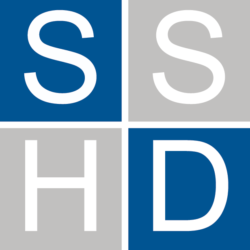Mentorship Moment: Applying Developmental Science with Richard M. Lerner
This past winter a group of leading scholars and members of the Society for the Study of Human Development (SSHD) engaged in an email conversation about how to support students interested in using developmental science to make a difference in the world. Many participants used examples from their own successful work to make the case that it is possible, if not yet highly valued in the field.
In reading these emails we (Dr. Jennifer Agans and Dr. Miriam Arbeit) were inspired to reach out to the SSHD Steering Committee with the idea of starting a regular blog series exploring issues related to conducting applied or translational work. The Committee endorsed this plan, and you are reading the first installment of the series. We hope the work presented in this blog will inspire you, and we encourage you to reach out to share your own success stories and lessons learned!
 This month we feature Dr. Richard M. Lerner, the Bergstrom Chair in Applied Developmental Science and Director of the Institute for Applied Research in Youth Development in the Department of Child Study and Human Development at Tufts University in Medford, Massachusetts. Dr. Lerner also serves on the SSHD Steering Committee and in 2013 received the Urie Bronfenbrenner Award for Lifetime Contribution to Developmental Psychology in the Service of Science and Society.
This month we feature Dr. Richard M. Lerner, the Bergstrom Chair in Applied Developmental Science and Director of the Institute for Applied Research in Youth Development in the Department of Child Study and Human Development at Tufts University in Medford, Massachusetts. Dr. Lerner also serves on the SSHD Steering Committee and in 2013 received the Urie Bronfenbrenner Award for Lifetime Contribution to Developmental Psychology in the Service of Science and Society.
Tell us about your work with community partners or programs.
I direct a lab, the Institute for Applied Research in Youth Development, that is framed by the slogan: “We seek to discover what goes right in the lives of youth.” Taking a strength-based approach to youth development, we conduct developmental and evaluation research that seeks to understand how we may align individuals and contexts to promote positive development of diverse youth, locally, nationally, and internationally. Typically, we partner with youth-serving organization in this scholarship, and therefore our work is used to shape the policies, programs, and practices of these organizations. For example, we have worked with 4-H, Boy Scouts of America, Girl Scouts of the U.S.A., Williamson College of the Trades, Positive Coaching Alliance, and the United States Military Academy at West Point.
We have learned that many community partners need to have their capacity enhanced in order to engage effectively in the developmental and evaluation research we conduct. Accordingly, through consultation and collaboration we provide a range of at cost or pro bono contributions to organizations, including helping with the development of theories of change, logic models, measurement/tool development, and design and implementation of evaluations. We have found that the key to effective university-community collaboration is humility of the part of the university researchers. Community members are the experts on their lives, culture, and programs. The best work we do occurs when we integrate the cultures of academe and the community in a collaboration that recognizes the assets that everyone brings to the work.
A graduate student, Jonathan Tirrell, collects data in an elementary school for one of Dr. Lerner’s studies.
Junior scholars often hear that doing this type of work will prevent us from getting tenure and promotion. In your experience, is that true?
It is unlikely that tenure and promotion will be awarded in Research 1 universities without the “conventional” credentials. Indeed, tenure and promotion will not be likely to be awarded in any research active university without such credentials. Therefore, community-collaborative research needs to be associated with grants to the university, and publications on which the candidate for tenure and promotion is first author. The good news is that, across the past 20 years, community collaborative scholarship, and applied developmental science more generally, has become a valued facet of academic work. Nevertheless, academics will not get faculty rewards from their departmental, college, or university tenure and promotion committees unless this work is coupled with grant-funded publications.
What advice do you have for researchers hoping to make a difference in the world?
Follow your passion. Do the work you believe important. However, recognize that you may need to err on the side of conventional scholarship pre-tenure in order to get the grants and publications to be awarded by tenure and promotion. I have learned that the people given the greatest opportunities (both in number and quality) to engage in work that makes a difference are the ones who have excellent reputations as top-tier scientists. You need to develop the credentials and reputation that will be magnets for attracting the opportunities to make a difference. World class heart surgeons do not reach this status overnight. They need to spend years developing their skills and their credentials. Applied developmental scientists need to have the same developmental commitment to their careers.
If you are a researcher doing applied or translational work, we want to hear from you! Contact the series editor, Dr. Jennifer Agans, at jpa75@cornell.edu to be featured in this blog.


